Entreprise and repertoire theater organization. How are they similar and how are they different? Let's answer this question together, analyzing what the theater of repertory and repertoire is.
Entreprise is ...
Let's start with the definitions. What is an enterprise? The word comes from the French. entreprisemeaning "enterprise". Theater of Entreprise is:
- A form of theatrical organization in which the entrepreneur (otherwise, the organizer) invites actors from other theaters to participate in the play.
- Theatrical entrepreneurship, a business project, which is typical for collecting for the play staged by the audience’s favorite actors from famous theaters to collect full houses, which bring good profit.
- A form of theatrical organization, in which invited popular actors, directors and directors are involved in the creation of the play, the game on the stage.
- Theatrical business, different from the classical theater in that the actors are recruited not for the whole season, but for a specific production.
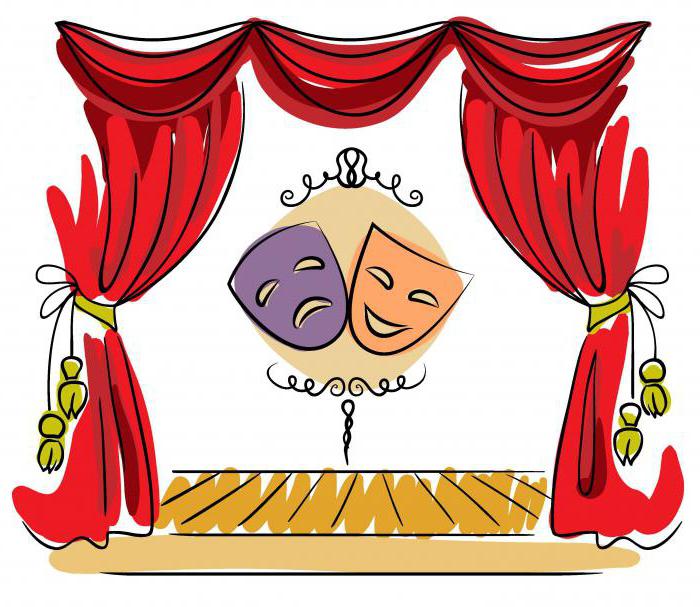
Let us now look at the specific features of this theatrical organization.
Features of Entreprise
Getting to know what an enterprise is, it will help us to get acquainted with its key features:
- At the head of such a theater is an entrepreneur, impresario, producer.
- Commercial, private organization.
- It does not receive or practically does not receive material support from the state.
- The lack of a permanent theater troupe.
- There is no static repertoire.
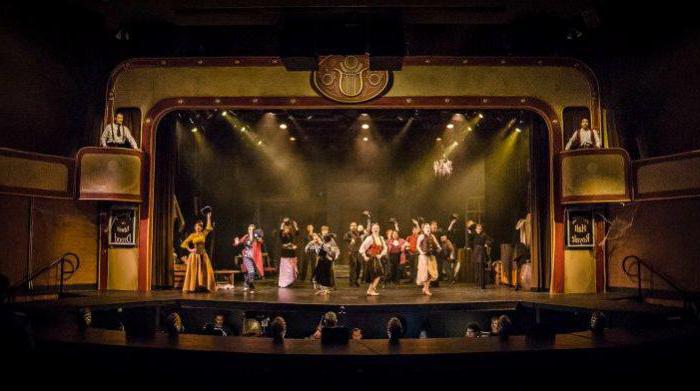
Types of Entreprise
Entrepreneurship theaters are divided into two types:
- Touring. Travel to various cities and theater venues. There is no reference to a specific location.
- Stationary. They have one or several venues for performances within the same city.
Entreprise in the modern world
In the modern world, there is a tendency for many European and world theaters to switch to an entrepreneurial policy. In some cases, this is not a sign that making a profit has become their main goal.
In many countries, there has been a reform of funding for cultural institutions. During it, independent antreprise theater troupes began to have the right to receive subsidies and grants from the state. Moreover, not only actors, directors, performers, producers, but also organizations that make it possible to create and demonstrate a play have become entitled to such material support.
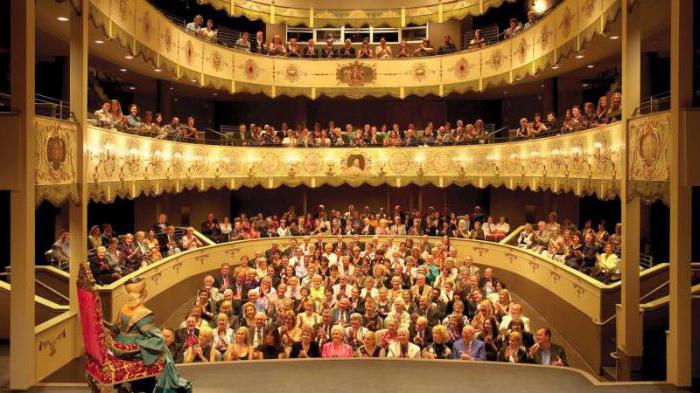
As for our country, many note that Russia does not provide anything for the creation of private independent theaters: there are no venues with regular spectators, subsidies or other support from the state, benefits and preferences. With all this, the repertoire theater in Russia is unprofitable. However, there is no other form of state theater organization that would pay off, allowing you to create commercially successful productions.
Entreprise inside
Let's see what the Russian theater of enterprises looks like in the opinions of those associated with this field of art:
- Basically, the performances are designed for the provincial audience - the arrivals of metropolitan artists always break shorts.
- Many entrepreneurs emphasize the stellar cast of the troupe, saving on scenery, elaborating on drama and plot.
- Our country is characterized not by cooperation, but by the confrontation of public and private theater.

Examples of Entreprise Theaters
Despite such a gloomy situation, what is an enterprise in Russia today is well known. We list such theaters in Moscow:
- "Art partner 21" L. Roberman.The performances can be seen on such venues: "Russian Song", CC "Moskvich", Pushkin Theater, "Theater of the Commonwealth of Taganka Actors". Such an organization is more inclined to touring.
- "Theatrical Commonwealth 814" by O. Menshikov. Stationary form: performances are organized at one venue - at the Mossovet Theater.
- "Studio of theatrical art" S. Zhenovacha. This private classical theater, created in 2005, is considered one of the best original, having its own unique repertoire. Thanks to the support of the philanthropist, "Studio" in 2008 stayed indoors on the street. Stanislavsky.
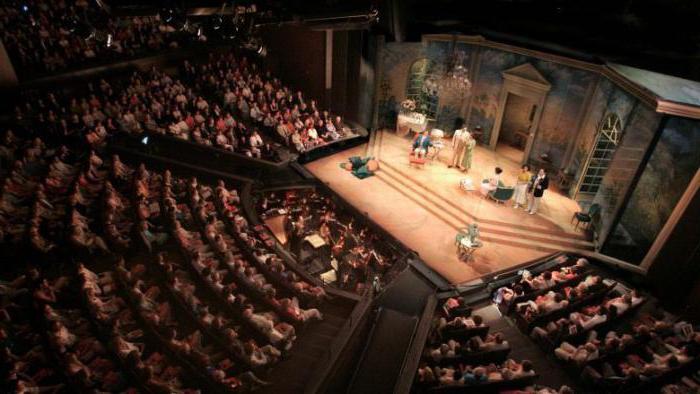
- "LA 'Theater" by V. Dubrovitsky. Performances can be seen in the Mayakovsky and Pushkin Theaters, "Variety Theater".
- "Theater Marathon" A. Gordienko. Performances in the "Theater on Serpukhovka", Central House of Artists, Yermolova Theater.
- "The Quartet And", "Another Theater" S. Petreikova. Both projects have a constant repertoire, their creations can be seen in the "Center-Museum of Vysotsky", DC named after Zuev.
- "Russian Entreprise named after Andrei Mironov" R. Furmanov. The project is touring the theaters of St. Petersburg and Moscow.
- "Modern Theater of Entreprise" A. Moginova. Performances can be seen in the "Theater on Serpukhovka", Central House of Artists.
Repertory theater
What can we take here? The repertoire theater is one of the forms of theatrical organization, which is characterized by a constant or slowly updated repertoire. Another feature is the permanent troupe. At the same time, such a theater is not forbidden to hire third-party actors to play in certain performances.
The stationary (which also has its permanent shelter) repertoire theater is most characteristic of our country and the countries of Eastern Europe. Therefore, we call it simply the word theater, without specifying an adjective. In other countries, sometimes the entreprise theatrical business, the Broadway theater, is becoming more popular.
The history of the repertoire type of theater
The first theaters that can be classified as repertoire appeared in England in the 19th century:
- 1879 - The Shakespeare Memorial Theater was created in Stratford-upon-Avon.
- 1891-1897 - The Independent Theater in London.
- 1912 Old Wick becomes a repertoire.
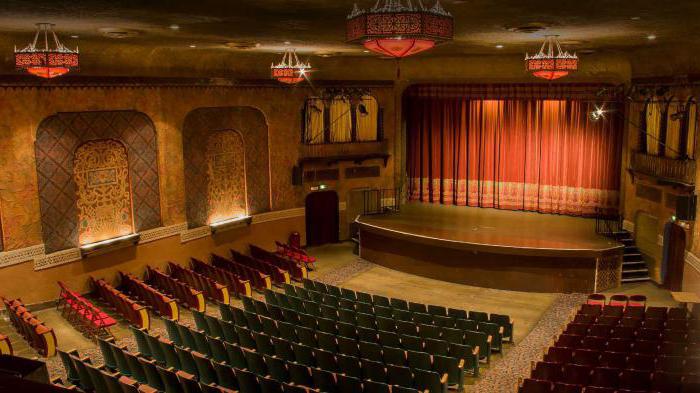
In the Russian Empire at the turn of the XIX-XX centuries, many repertoire theaters worked:
- More than four hundred folk semi-professional.
- About ten provincial bureaucrats.
- 5-6 stationary Imperial in St. Petersburg and Moscow.
To this number was added about 300 entreprise and theatrical partnerships.
Key differences
We examined what is the repertory and repertoire organization of the theater. Let's list their main differences:
- The repertoire type of the theater has a permanent troupe, the entreprise does not. The organizer is gaining theater groups from the actors invited to a specific performance.
- Entreprise is considered a more commercial form. It is understood that one of its important goals is to make a profit.
- Unlike the repertoire, entreprise is always a private theater.
- Failure to stage an entreprise theater - sometimes bankruptcy, ruin. Repertory theaters with state support have the opportunity to stage commercially unprofitable performances.
Entreprise is not a new phenomenon in the theater. In Russia, for example, before the revolution, most theaters were like that. The future of this sphere of art lies precisely with the entreprise. However, while in our country, the transition from repertoire to an entreprise theater is not welcomed by the state.